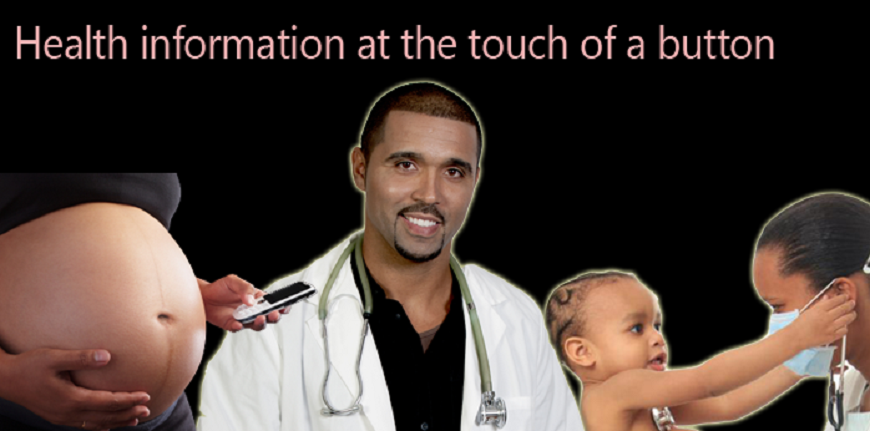Health information app InstaHealth is aiming to become a pan-African and even global brand after rebranding from its previous incarnation as M-Tambula.
Initially founded in January of 2014 as M-Tambula, InstaHealth is a mobile application that enables anybody with a feature phone or a smartphone to access health information instantly.
It uses geo-location and an interactive voice response (IVR) system to connect users to health centres, specialists, ambulances and consultation services, while also providing an instant first aid guide, doctor consultations and health awareness information.
“The service is built on very simple technologies that more than 40 per cent of the country’s population can access,” founder Brenda Katwesigye told Disrupt Africa.
Katwesigye conceived of the idea for InstaHealth as a final year student at Makerere University in 2013.
“I created a system for authentication of drugs via USSD. My supervisor at the time loved the project and always encouraged me to continue with it, as he believed that it had the potential to transform the medical sector through technology,” she said.
“With the skills and knowledge obtained through this experience, I realised that people need information. But there is one challenge and that is access.”
Katwesigye received immediate support for her idea after she was selected as a winner of the International Telecommunication Union (ITU) Young Innovators Competition in November 2013, where it also received seed funding. Since then it has received funding from the government of Chad to grow the project.
Such has the positive response been to the concept that Katwesigye is already thinking beyond Uganda.
“We decided to rebrand because we wanted a more global forward brand. We did not want to limit ourselves to Uganda with M-Tambula. We also redesigned our site to reflect something more professional,” she said.
Currently, however, the startup is focusing on growing its usage and revenues within Uganda, where Katwesigye feels there is plenty of opportunity for growth. InstaHealth makes money by charging for calls that go through its system.
“There is no system in Uganda that currently maps and gives accurate locations of health centres, the services they offer, direct contacts,” she said.
“There is also a huge information gap between creators of health content and the consumers of the same. Because of this, InstaHealth seeks to be a comprehensive source of reliable health information. InstaHealth takes advantage of the existing GSM infrastructure and the continuously growing mobile phone subscription rates to provide an easy-to-use service that brings health information directly to the phone of every Ugandan.”
She said the IVR numbers have been tested very well in Kampala.
“However, even people outside of the country can be able to call our IVR numbers and get to consult doctors and counselors through the system. The Android application can also be accessed anywhere in the world,” she said.
“We plan to expand to all parts of the country because our system supports feature phones too. So we are not limited by internet connectivity. We want our system to be used by people in rural areas too.”


